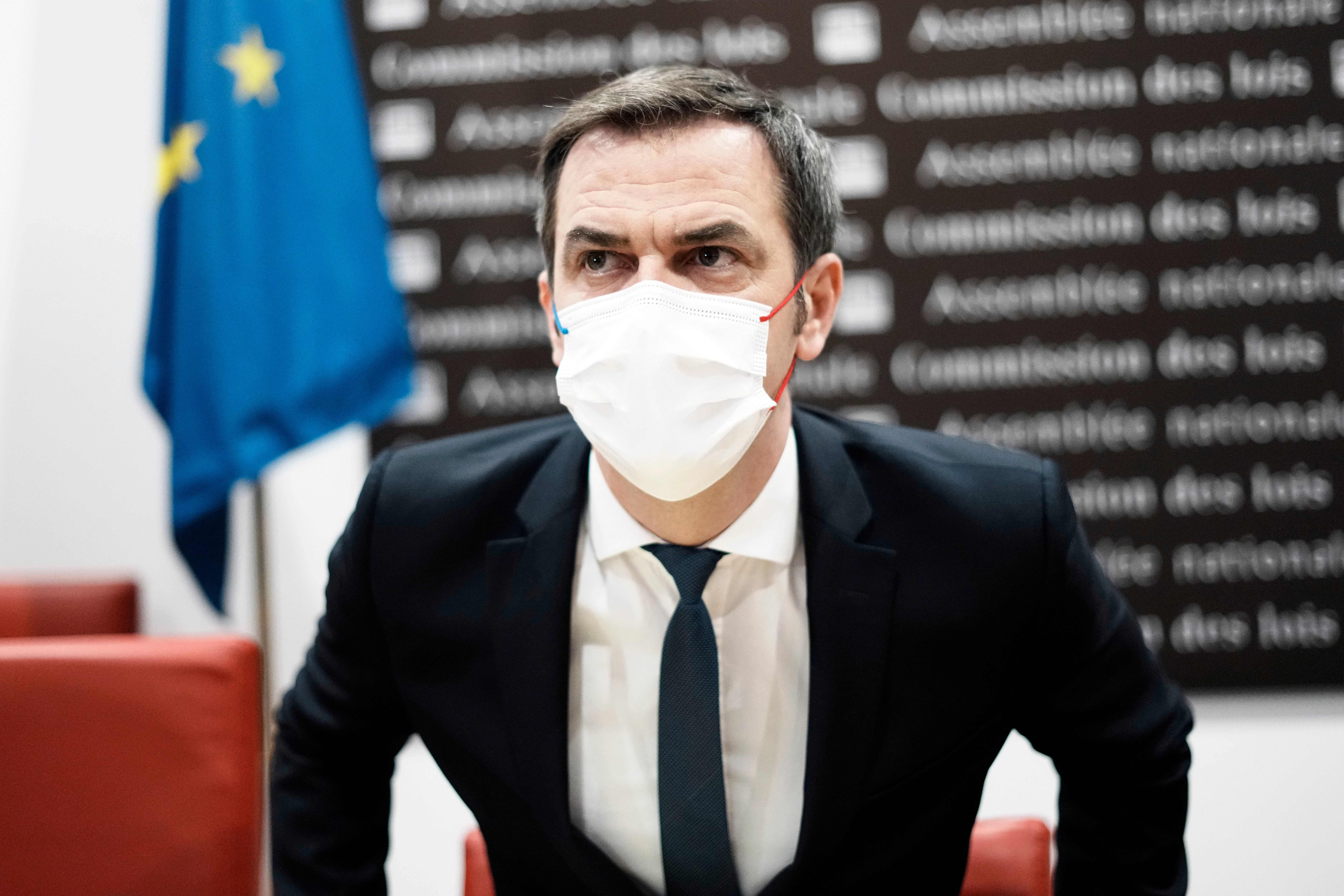France ups pressure on unvaccinated amid record infections
France’s government is forging ahead with efforts to increase pressure on unvaccinated people to get coronavirus jabs

Your support helps us to tell the story
From reproductive rights to climate change to Big Tech, The Independent is on the ground when the story is developing. Whether it's investigating the financials of Elon Musk's pro-Trump PAC or producing our latest documentary, 'The A Word', which shines a light on the American women fighting for reproductive rights, we know how important it is to parse out the facts from the messaging.
At such a critical moment in US history, we need reporters on the ground. Your donation allows us to keep sending journalists to speak to both sides of the story.
The Independent is trusted by Americans across the entire political spectrum. And unlike many other quality news outlets, we choose not to lock Americans out of our reporting and analysis with paywalls. We believe quality journalism should be available to everyone, paid for by those who can afford it.
Your support makes all the difference.France’s government is forging ahead with efforts to increase pressure on unvaccinated people to get coronavirus shots, as the country reported 208,000 new COVID-19 cases Wednesday — a record fueled by the omicron variant.
Health Minister Olivier Veran on Wednesday defended a government plan to allow only the fully vaccinated to enjoy continued access to places such as restaurants, cinemas, theaters, museums, and sports arenas. The pass will also be required on long-distance trains and domestic flights.
Veran said at a parliamentary hearing that the record number of infections means that more than two French people are testing positive every second for COVID-19. Veran estimated that about 10% of the French population has been in contact recently with a person infected with the virus.
Speaking to those not vaccinated, he said: “There is really little chance that this time you can escape (COVID-19): The virus is spreading too fast." Veran said that in Paris public hospitals, 70% of people hospitalized in intensive care units aren't vaccinated.
He also advised the most vulnerable people who didn't get the vaccine booster shot yet to “protect yourself in the coming days. Don't take risks.”
The speeded-up introduction of the so-called vaccine pass forms part of a government strategy to use vaccinations, rather than new lockdowns, to try to soften the impact of the fast-spreading omicron variant on already overburdened hospitals.
France has vaccinated 77% of its population and is rushing out booster shots, again to combat omicron. But more than 4 million adults remain unvaccinated, including more than 1 million people over age 65.
More than 3,400 COVID-19 patients were hospitalized in intensive care units on Wednesday, an increase of 10% over the past week. The figure represents two thirds of ICU beds occupied by people infected with the virus. But the number is lower than during the previous peak in the spring, when about 6,000 COVID-19 patients needed intensive care.
The government wants the vaccine pass to be in place by mid-January.
The bill is likely to be voted on quickly in parliament, with President Emmanuel Macron’s party holding a majority at the National Assembly which has the final say.
If approved, its introduction will mean that unvaccinated people will no longer be able to use negative test results to access places where the vaccine pass is required.
The bill provides for an exception to the pass — notably to take trains and planes — for people with family or health emergencies on condition they are able to present a negative test.
Those who aren't vaccinated but have a proof of a recent COVID-19 recovery will be able to get a vaccine pass limited to a six-month period following infection.
On Monday, Prime Minister Jean Castex announced a series of new measures to try to curb the spread of the virus. Yet the government stopped short of taking drastic restrictions, like curfews or lockdowns, appearing to be trying to strike a balance between measures needed to relieve hospitals and keep the economy running at the same time.
Starting from next week, big events will be limited to 2,000 people indoors and 5,000 people outdoors. Eating and drinking will be banned in cinemas, theaters, sport facilities and public transportation, including on long-distance routes. Working from home will be mandatory at least three days per week for employees whose job makes it possible.